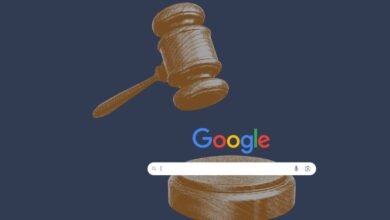Is the Tech Antitrust Era Already Ending?

▼ Summary
– The “Break Up Big Tech” movement gained momentum around six years ago, leading to antitrust cases against major tech companies like Google, Meta, Amazon, and Apple.
– Judge Amit Mehta recently issued a ruling on remedies for Google’s illegal search monopoly, rejecting aggressive proposals like selling Chrome and narrowing other measures.
– The ruling is seen as a setback for antitrust enforcers, with critics calling it a “slap on the wrist” and judicial cowardice, while Google’s stock rose significantly.
– Mehta justified his cautious approach by citing the rise of generative AI as a potential market disruptor, which could reduce the need for stringent remedies.
– Reactions were mixed, with some advocating for appeals or congressional action to enforce competition, while tech companies like Apple and Mozilla welcomed the decision for preserving their deals.
The push to dismantle major technology firms appears to be losing steam, despite years of political pressure and high-profile legal battles. What began as a widespread demand to break up Big Tech has encountered significant judicial and practical hurdles, raising questions about the future of antitrust enforcement in the digital age.
Six years ago, a powerful movement swept through the nation’s capital, fueled by calls to rein in the influence of Silicon Valley’s largest corporations. Campaign slogans, congressional testimonies, and regulatory agendas all echoed the same theme: it was time to confront tech monopolies. While legislative efforts eventually stalled, federal antitrust agencies ramped up their activities. President Biden’s appointment of Lina Khan, a prominent critic of Amazon, to lead the FTC signaled continued resolve. A series of lawsuits targeting Google, Meta, Amazon, and Apple accumulated, some initiated during the previous administration.
Recent courtroom developments, however, suggest a shifting landscape. After securing initial victories in two major antitrust cases against Google, the Justice Department faced a setback this week. Judge Amit Mehta, who previously ruled that Google illegally monopolized search, delivered a surprisingly restrained set of remedies. He rejected the government’s most aggressive proposals, such as forcing the sale of Chrome, and limited other measures aimed at fostering competition.
This ruling represents the first resolution among several ongoing tech antitrust cases, and its cautious tone may influence future decisions. While the DOJ continues to pursue a breakup of Google’s ad tech business in a separate Virginia case, the outcome of this initial ruling offers a sobering reality check for reformers.
To prevent a breakup, a tech titan only needs the system to flinch once, and Judge Mehta’s hesitation illustrates how challenging it is to impose structural changes on fast-moving digital markets. His decision acknowledged the disruptive potential of generative AI, which has altered competitive dynamics since the trial began. He noted that well-funded AI startups could finally challenge Google’s dominance in search, a sector once considered untouchable.
Critics were swift to condemn the ruling. Advocacy groups like the Open Markets Institute and the American Economic Liberties Project described the outcome as “judicial cowardice” and a “slap on the wrist.” Senator Elizabeth Warren, a longtime proponent of breaking up Big Tech, urged the DOJ to appeal.
In contrast, the head of the DOJ’s antitrust division struck a triumphant note, framing the decision as a validation of the government’s efforts to restore competition. Yet market reactions told a different story. Google’s stock surged following the announcement, and companies like Apple and Mozilla expressed relief that their lucrative search partnerships with Google would remain intact.
Mozilla’s interim CEO highlighted the court’s awareness of “unintended consequences,” suggesting that overly aggressive interventions could harm innovation and the open web. Meanwhile, some advocates are turning their attention back to Congress, urging lawmakers to pass new regulations that establish fair competition rules.
As the tech industry and its observers digest the 230-page ruling, one thing is clear: the path toward restructuring America’s largest technology companies is far more complex and uncertain than many had hoped.
(Source: The Verge)





